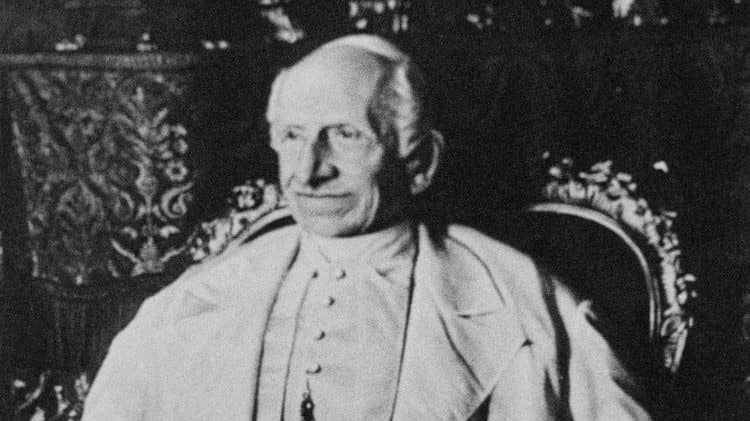ROME – From the outside, you might think the most talked-about thing in Rome right now is Pope Francis in the Gemelli Hospital, with various theories making the rounds that he’s actually worse than the Vatican is saying, that his surgery for diverticulitis of the colon wasn’t actually “planned” as they claimed, and so on.
In truth, you’d be wrong.
Romans have lived through papal health scares before, and they’ve got a sort of sixth sense about sniffing out the truly serious. For right now, most people here seem to be assuming this is par for the course for an 84-year-old male and aren’t getting their noses out of joint.
On the other hand, every Roman you meet right now, whether in the supermarket, or a cab, or a restaurant, or a tobacco shop, or wherever, has just one question for you: What do you think is going to happen Sunday night?
The reference is to the epic final of the Euro 2020 soccer tournament, which pits Italy against England after a month-long process that whittled 24 teams down to two. Perhaps not since the English Reformation have Italy and England squared off against one another in quite so dramatic a fashion.
Both teams have survived stern challenges, from extra time to penalty kick shoot-outs. The English national team hasn’t won a major championship for 55 years, but they’re playing at home in Wembley Stadium, while Italy is playing for a country which, after the economic and social dislocations of the coronavirus, badly needs a lift, and for which soccer (or calcio, as the Italians call it) is a national obsession.
The game takes place Sunday at 8:00 p.m. in London, 3:00 p.m. on the East Coast in the U.S., and will be broadcast nationally on ESPN.
Two things about Italian reaction are especially interesting.
First, veteran Italian columnist Beppe Severgnini had a column yesterday in Corriere della Sera, Italy’s most authoritative daily paper, noting that the goals scored by the Italian team in this year’s tournament haven’t been just tactically sound but also aesthetically pleasing – athletic, artistic, dramatic.
In part, Severgnini attributes that tendency to the impact of coach Roberto Mancini, but also to the Italian national character.
“These spectacular goals respond to an Italian need for beauty, which should never be underestimated,” he wrote. “Between what’s good and what’s beautiful, we often privilege the latter … think about the national propensity for the beautiful gesture, and the way we struggle with good behavior.”
“Natural beauty, artistic beauty, beauty linked to objects, to food or clothes – there’s no such thing as Italians who dress badly, only Italians who don’t care about dressing well,” Severgnini wrote.
This lust for the bella figura, for making things look good, reaches into the Vatican as well, and always has. It helps explain why the Vatican has such an endless capacity for great theater, for producing liturgies and other major events with great flourish, and such an underdeveloped ability at times to ensure that the systems and outcomes underneath those glitzy happenings are actually sound.
The other dimension of the current Italian fascination with the fate of the national team worth noting is the role that both soccer and Catholicism play in forming identity here.
Italy wasn’t unified in its present form until 1870, and the question of what makes someone “Italian,” as opposed to Neapolitan, Sicilian, Umbrian, or one of Italy’s other highly distinct regions, has always been pressing. It arose with special intensity under the fascists in the 1920s and 30s, since inculcating fealty to la patria was an obsession for Mussolini.
As it happens, international soccer championships began to take form around the same time, and Italy was among the early powerhouses. The Italian national team won the forerunner of the World Cup in 1934 and the soccer competition at the Berlin Olympics in 1936, eliciting fervor all up and down the Italian peninsula – offering, in many ways for the first time, a persuasive answer to the question, “What does it mean to be Italian?”
One way of replying, and a response that would make sense to many Italians even today, is, “It means cheering for the Azzurri,” in reference to the national team. (They’re called the Azzurri, or “the blues,” because blue was the dynastic color of the House of Savoy that helped lead Italy to unification.)
In truth, Italians have precious few things in common. The style of life, values, outlook and expectations of someone who lives in far northern Piedmont are wildly different from someone who lives on the far southern island of Sicily. Aside from the fact that Italians share the same national government – and the same tendency to complain endlessly about that government – the only forces that embrace the entire peninsula are the Catholic Church and passion for the national soccer team.
In post-unification Italy, the Church couldn’t be promoted by the state or by secular society as a basis of national identity, so soccer became the de facto civil religion, a secular pillar of Italian identity. In cheering for the Azzurri, Italians do far more than urge their team to victory – they proclaim themselves, against all odds, as a people.
Yet however much Republicans or Fascists may have wanted a passion for soccer to stand on its own, apart from the residual Catholic identity of Italy, in the end the two can’t help bleeding together. Last Tuesday, when Italy faced Spain in the semifinals and had to go to a penalty kick shootout before finally prevailing, all up and down the country Italians found themselves praying to the Madonna, rubbing icons and holy cards, and lighting candles before the fateful shots were taken.
In other words, a great deal of what makes Italy Italy – and hence, what makes the Vatican the Vatican – will be on the field Sunday night, as the Azzurri once again play for national pride, and as their followers storm heaven on their behalf with distinctly Catholic form of prayer.
It’s a phenomenon the current pope undoubtedly is following with interest from his hospital room, since his own ancestors come from Italy’s Piedmont region … and, of course, because he’s a bit of a soccer fan himself, and his native country, Argentina, will be playing their bitter rivals Brazil in the final of the Copa America on Saturday.
Follow John Allen on Twitter: @JohnLAllenJr

















